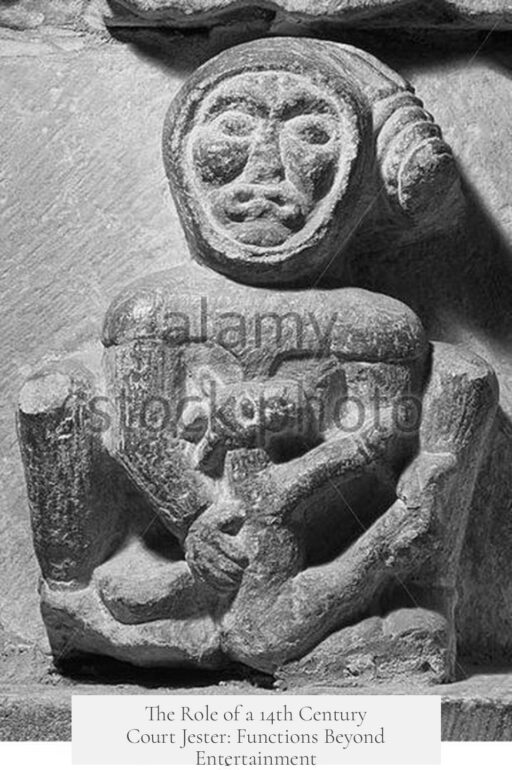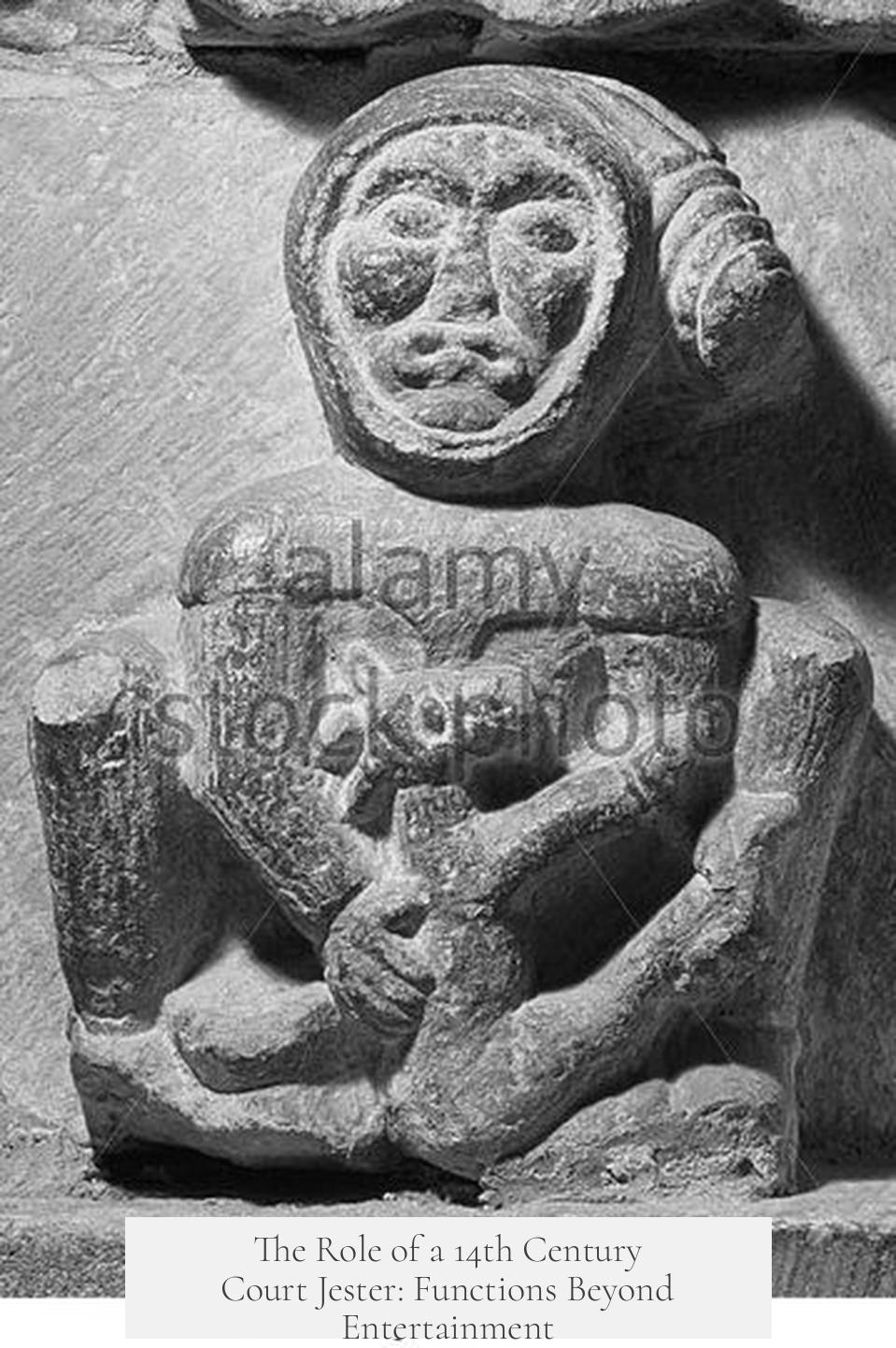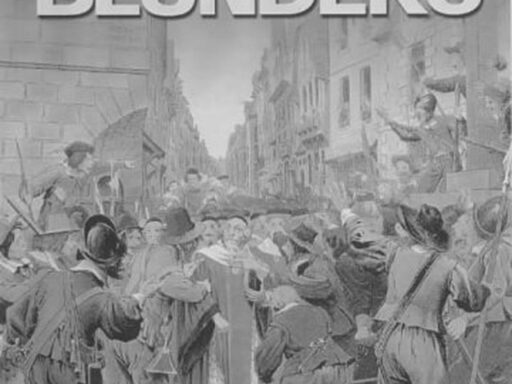The role of a 14th century European court jester goes beyond mere silliness and entertainment. While jesters primarily aim to make people laugh using humor, song, parody, and witty social commentary, they also hold distinct courtly functions. These include offering emotional support to monarchs, wielding a unique license to criticize nobility, and sometimes enjoying a semi-intimate relationship with rulers, allowing for subtle influence beyond entertainment.
Jesters differ from other court entertainers like jugglers, tumblers, or musicians. Their comedy is sharp and often includes roasting court figures. This roasting was more than humor; it served as a socially accepted way to speak uncomfortable truths under the guise of folly. Unlike other entertainers, jesters occupied a special position that allowed them to mock nobles and courtiers without severe consequence.
Historically, courtiers like Will Somers, who served Henry VIII in the 16th century, illustrate the potential scope of a jester’s role. Somers was not simply a fool; he provided emotional relief to the king during times of pain and distress. This close relationship gave Somers a level of personal access often denied to noble advisors or courtiers. Contemporary observers noted Somers’ wit and cognitive sharpness, setting him apart from “natural fools” who might have been mentally handicapped. Instead, Somers operated as a “comic,” using humor strategically within the court.
In the 14th century specifically, direct documentation is sparse, but literary sources like William Langland’s Piers Plowman depict the social role of fools and jesters. They acted against social norms by delivering “mockeries” and “mean things” to those who withheld gifts, suggesting jesters participated in complicated social dynamics involving critique, negotiation, and entertainment. By extension, 14th century jesters likely shared functions similar to those documented in later centuries.
Jesters also contributed to psychological and emotional wellbeing in the court. The ability to cheer and comfort monarchs amid personal or political crises gave jesters a rare emotional influence. Their comedy relieved tensions and offered a form of companionship that differed sharply from formal advisors.
Moreover, jesters sometimes engaged in physical humor and pranks, known from anecdotes shortly after the 14th century, highlighting their accepted role in breaching social boundaries safely. Such acts were risky but sanctioned, reflecting the delicate balance jesters maintained between humor and court decorum.
Jesters often had distinctive courtly recognition. For example, visual depictions of Will Somers in Henry VIII’s personal psalter and Whitehall Palace demonstrate the visibility and sometimes prominent status of court jesters. Their costumes, props (like the symbolic monkey), and documented presence affirm their integral role within royal households.
| Aspect | Description |
|---|---|
| Main Function | Provide comedic entertainment using humor, song, and parody; roast court figures |
| Courtly Role | Emotional support to monarchs; access to monarch’s private counsel; licensed social critique |
| Social Status | Respected and visible court figures, sometimes recorded or depicted in artwork |
| Unique Privileges | Freedom to mock nobility; breach social norms via humor without punishment |
| Historical References | *Piers Plowman*’s references to fools in 14th century social order; anecdotes of early 15th century pranks |
The multifaceted role of a jester encompasses both entertainment and subtle social influence. Jesters support monarchs emotionally, provide unique insight veiled in comedy, and hold a recognized place in court hierarchy. Their ability to blend humor with critique creates a complex role extending far beyond merely being silly.
- Jesters primarily entertain with humor, parody, and roasting of nobles.
- They enjoy unique social license to criticize powerful figures safely.
- Some jesters maintain close, personal access to monarchs, easing court tensions.
- The 14th century context shows jesters engaged in social satire and occasional physical pranks.
- Jesters hold respected, sometimes recorded, roles within court culture.
I’m a Court Jester in the 14th Century Europe: What Does My Role Actually Entail Beyond Being Silly?

Being a 14th-century European court jester means more than wearing a colorful hat and telling silly jokes. Your role dives deep into entertainment, social commentary, emotional support, and even political influence. So, what’s really on the jester’s agenda beyond roughhousing and slapstick?
Often, people imagine jesters as nothing more than harmless buffoons—there to provide laughs and lighten the mood. But if you step into the shoes of a real 14th-century jester, you’d find a nuanced position, woven tightly into court life.
More Than a Clown: The Entertainment Aspect
First off, yes, the primary gig is to make everyone laugh. But it’s not just about being silly. A jester in your time is a master of bawdy songs, clever parodies, and witty mockery—the kind of humor that pokes fun relentlessly at court customs and high-ranking figures without crossing the line into actual offense.
Interestingly, court records from later periods like Tudor England clarify that jesters are a distinct breed. While jugglers flip and tumblers tumble, jesters wield sharp tongues and comic timing. This division suggests that your skill set is specialized: verbal comedy, satire, and social commentary.
Jesters as Strategic Truth-Tellers: The “Freedom to Roast”
Now here’s a juicy twist: unlike other courtiers, you hold a rare license to mock and critique nobility openly. Imagine roasting the highest lords of the land—verbal jabs and pointed jokes delivered with a wink and a nod. This isn’t just comedic relief; it’s a form of social regulation and political commentary safely wrapped in humor.
That might sound like a risky hustle, but the jester’s “fool’s hat” acts as a shield. Any critique you offer is couched in jest, enabling you to bypass the courts’ usual rules of decorum and censorship. Ever thought of yourself as a medieval truth-teller? You are exactly that.
The Jester’s Courtly Influence: More Than Entertainment
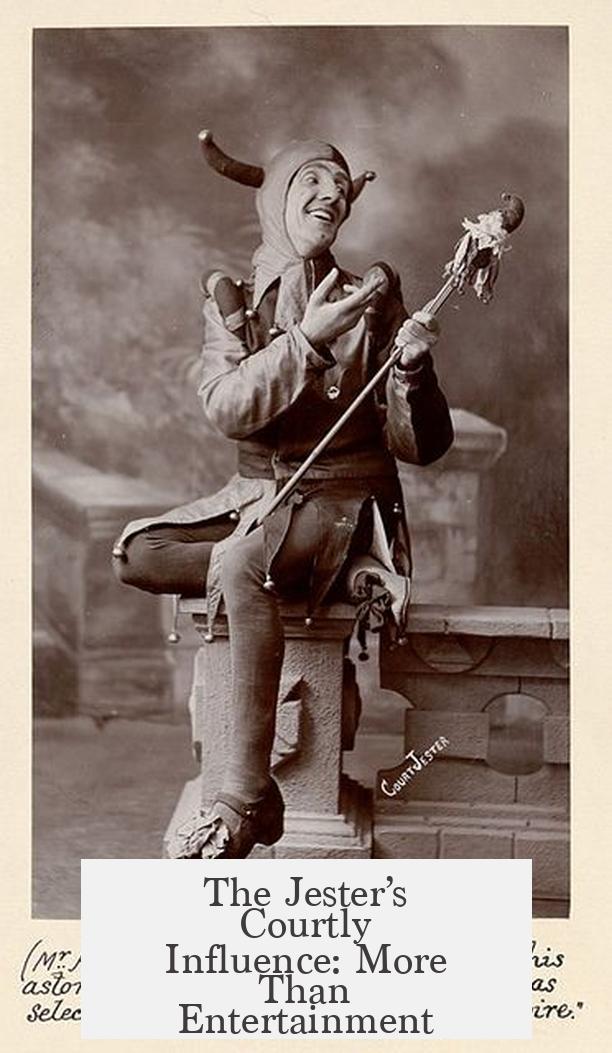
Take for example Will Somers, a famous jester from the Tudor court. Though slightly later than your 14th-century era, his career reveals what’s possible for a jester’s influence.
Somers had the king’s ear in ways even nobles envied. After Henry VIII suffered a painful jousting accident, Somers was reportedly the only one who could lift the king’s spirits. This shows the jester’s role extending into psychological and emotional support—a kind of informal therapist wrapped in humor. Your job can be to console a monarch who’s drowning in stress or chronic pain while brightening the heavy atmosphere.
This closeness wasn’t just luck or whimsy. Somers’ cleverness and wit—more comic than fool—made him a trusted companion. Unlike the “natural fools” who might be mentally handicapped or simple-minded, such jesters wield intellect as a weapon and shield. Your sharp observation and social intelligence can position you as a counselor cloaked in jest.
Social Standing and Visibility in the Court
Contrary to the idea of being a mere jester in the background, you might find yourself a notable figure at court. Somers appeared in the king’s personal psalter and court portraits, even with a symbolic monkey on his back—an image reflecting both his playful and burdened status.
Though decorated with funny costumes, you hold a recognized, sometimes respected, place in hierarchy. The longevity of jesters like Somers, who served multiple monarchs, signals the esteem and security this role could bring.
Jesters in the 14th Century: What the Records Suggest
Though most direct records we have come from periods after the 14th century, like Tudor England, there are hints about your 14th-century version. William Langland’s Piers Plowman mentions fools and jesters acting against official norms by mocking laws and authority—hinting that social critique through humor was alive and well.
Stories from early 15th-century courts show jesters engaging in physical pranks and public stunts, suggesting your role wasn’t always safe or gentle. These antics came with social risks but also endorsed accepted boundaries for behavior. Your presence challenges the court but also bonds it.
Practical Tips for the 14th-Century Jester
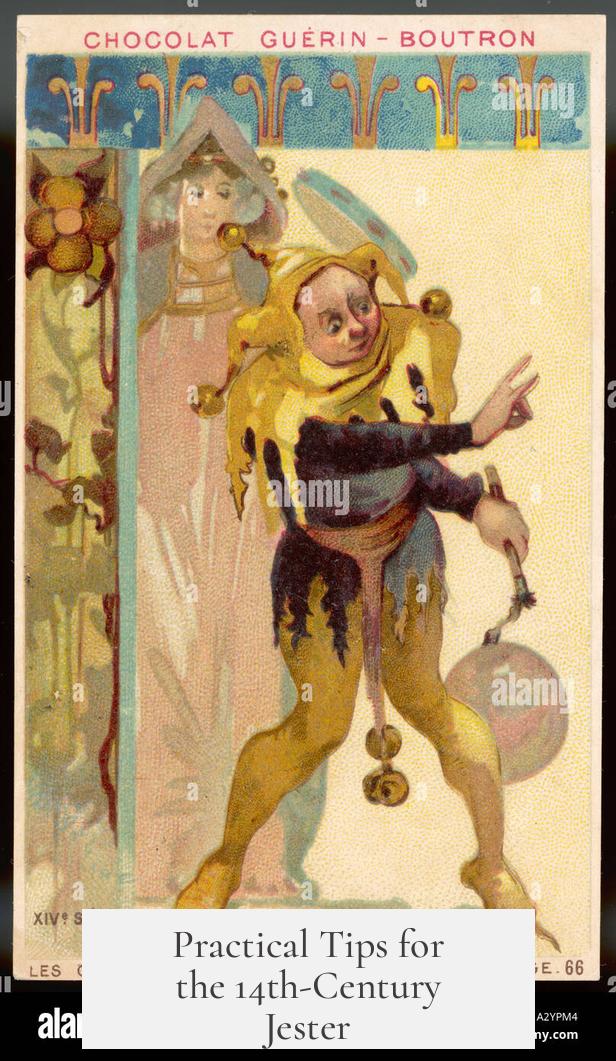
- Master your humor styles: Blend bawdy songs, satire, and witty banter with physical comedy, but keep your critiques sharp and clever to earn respect.
- Build bond with your monarch: Strive to understand your king or queen’s moods and needs—emotional intelligence can set you apart as an invaluable companion.
- Know your limits and allies: You have a unique license to roast nobles, but avoid crossing into dangerous territory—court politics are tricky.
- Observe and adapt: Your role often depends on reading the room; timing and tact make the difference between favor and disgrace.
Why Being a Jester Might Just Be the Most Powerful Role in Court
Think about it: as a jester, you combine comedy with courage and closeness to power in rare ways. While others play safe, you get to speak truths no one else dares. You’re a lightning rod for social tension yet a trusted comfort to monarchs. Your humor shapes court culture, influences royal moods, and even offers subtle counsel.
Does your job as a mere “silly fool” still seem simple? Courts rely on you more than they admit. You’re a performer, a commentator, a confidant—and sometimes, a crucial cog in history’s grand machinery.
So next time someone laughs at you, remind them: it is the jester who dares to hold a mirror to power, armed with sharp wit and an agile tongue. The crown may be heavy, but the jester’s hat carries profound responsibility beneath its bells.
